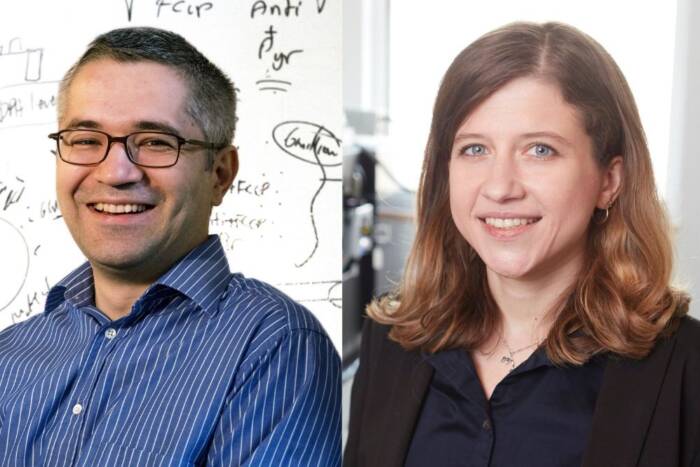Thomas Eisner to receive 2005 Lewis Thomas Prize for Writing about Science
A world authority on animal behavior, ecology and evolution, Thomas Eisner, has been chosen to receive The Rockefeller University’s 2005 Lewis Thomas Prize for Writing about Science. Eisner will receive the prize, and give a lecture titled “The Ruling Class: Tales of Insect Survival,” on Tuesday, October 11 at 5:30 p.m. in Rockefeller University’s Caspary Auditorium.

Eisner's book, For Love of Insects, winner of the Best Science Book in the 2004 Independent Publisher Book Awards.
The Lewis Thomas Prize, which will be presented to Eisner by Rockefeller University President Paul Nurse, honors the rare individual who bridges the worlds of science and the humanities — whose voice and vision can tell us about science’s aesthetic and philosophical dimensions, providing not merely new information but cause for reflection, even revelation. Previous recipients of the prize, first awarded in 1993, include Jared Diamond, Oliver Sacks, E.O. Wilson and Jean-Pierre Changeux.
From the millipede to the bombardier beetle to the garden slug, Eisner, who is Jacob Gould Schurman Professor of Chemical Ecology at Cornell University and director of the Cornell Institute for Research in Chemical Ecology, has yet to meet an insect he didn’t love. He is one of the pioneers of chemical ecology, a discipline devoted to the study of chemical interactions between organisms. But in addition to his inventive scientific career, Eisner has chronicled his studies of insects and how they mate, trap their prey and defend themselves in books and on film. He is author or co-author of nine books, including For Love of Insects, winner of the Best Science Book in the 2004 Independent Publisher Book Awards. And he is a well-known nature photographer; his film Secret Weapons won the Grand Award at the New York Film Festival and was named Best Science Film by the British Association for the Advancement of Science.
A field biologist with working experience on four continents, Eisner is an active conservationist. He is the president of the Xerces Society, an organization devoted to the preservation of invertebrates. He played a key role in initiating the Congressional Fellows Program in Washington and in efforts to preserve wilderness areas in Florida and Texas. Most recently, he advocated “chemical prospecting,” the search for new medicinals, agrochemicals and other useful substances from nature. He has brokered a prospecting partnership between Merck & Co. and Costa Rica intended to engender revenue for preservation of Costa Rican biodiversity.
Eisner grew up in Uruguay, and is a naturalized American citizen. He received his B.S. and Ph.D. degrees from Harvard University. Eisner is a member of the board of directors of the Union of Concerned Scientists. He is a past president of the American Society of Naturalists and former chairman of the Biology Section of the American Association for the Advancement of Science. He is also a member of the National Academy of Sciences, the American Academy of Arts and Sciences, and the American Philosophical Society, and he has received numerous honors, including the Tyler Prize for Environmental Achievement, the Harvard Centennial Medal, the U.S. National Medal of Science and honorary degrees from institutions in Sweden, Germany, Switzerland and the United States. He is also an avid pianist and occasional conductor.


